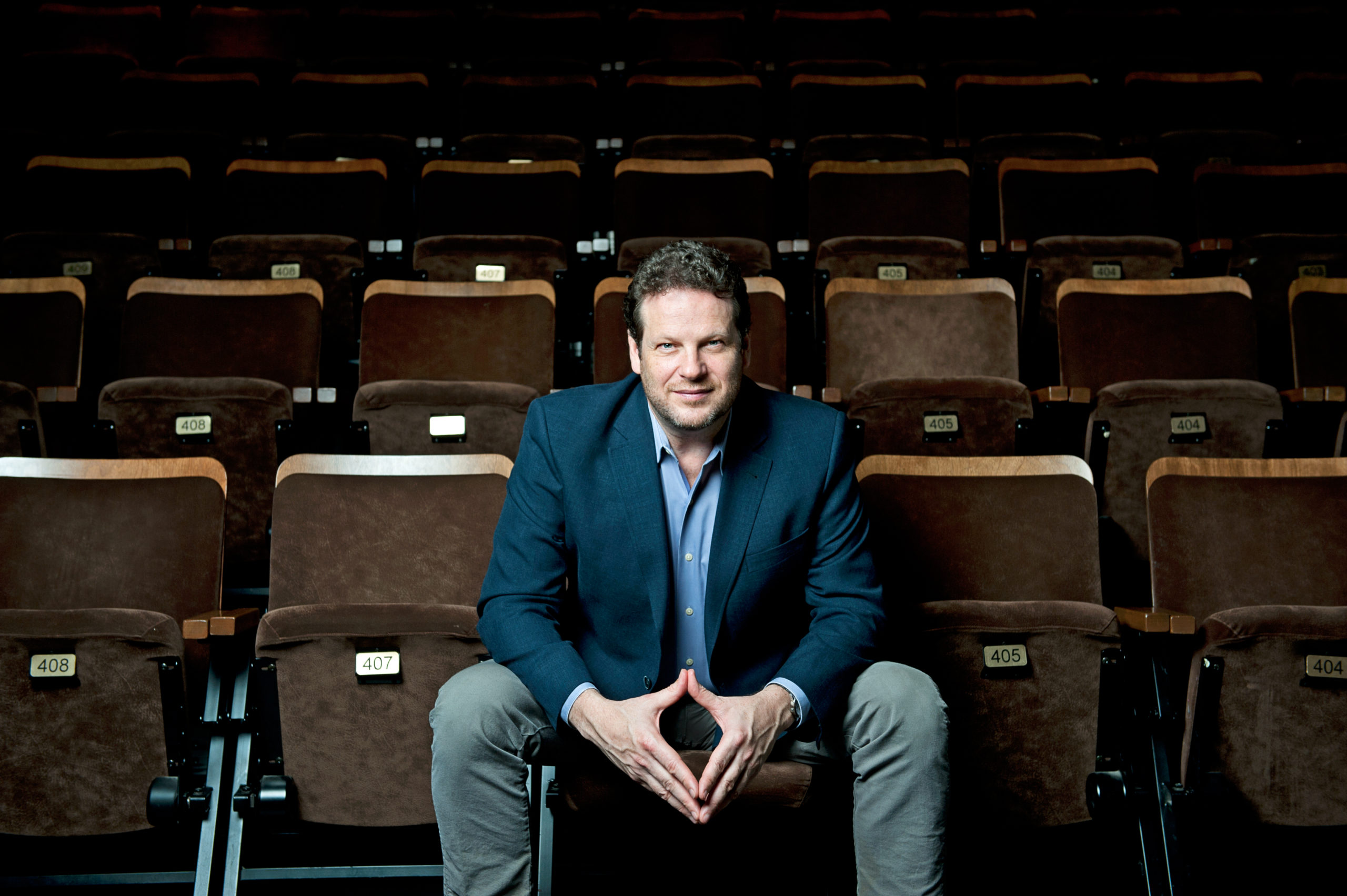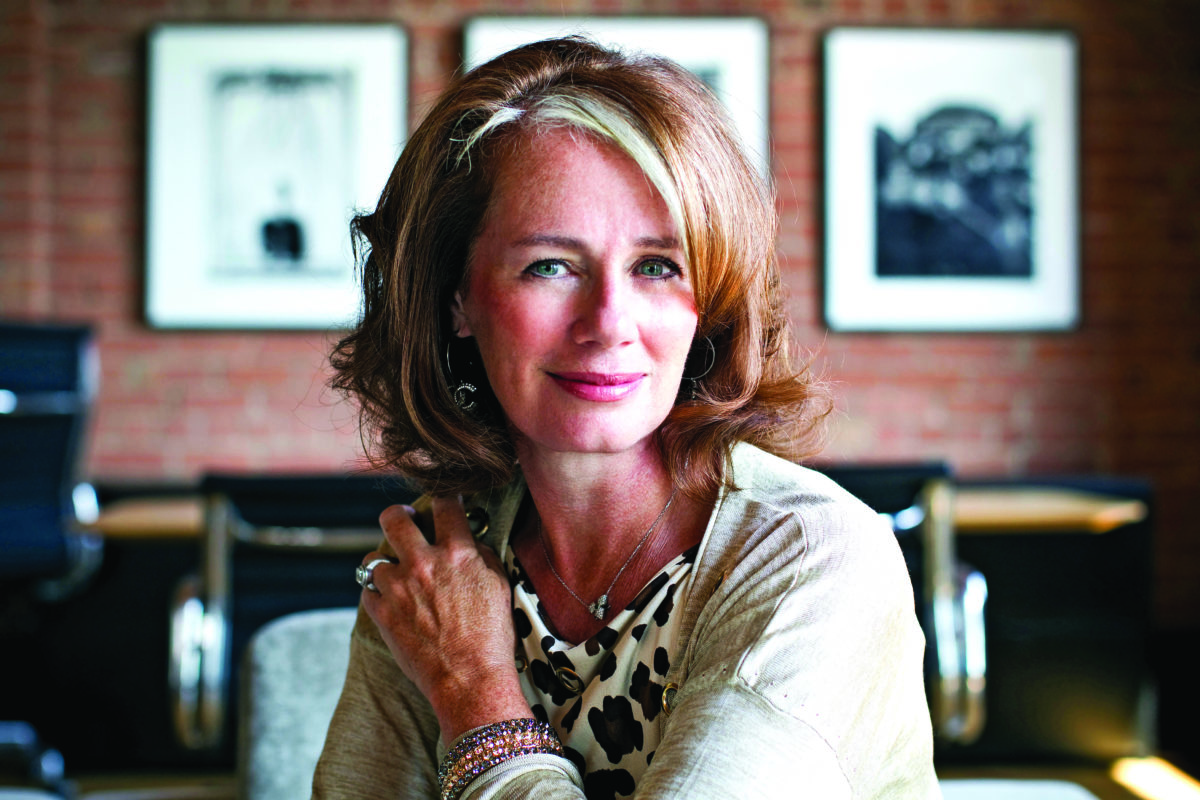
Toronto’s theatre community is undergoing a renaissance. A quick look in any NOW magazine reveals a wealth of engaging productions from the grand stages of King Street to tucked away venues like Pottery Road’s Paper Mill Theatre. And though it can appear to the casual observer that Mirvish Productions is the main game in town, another group, led by an articulate and accomplished artist, has emerged over the past several years to stake its own claim as one of the city’s destinations of choice for year-round, high-quality live theatre.
This spring will mark the beginning of the 17th season for the Soulpepper Theatre Company, and its 10th season at the Distillery Historic District’s Michael Young Centre for the Performing Arts. Following its 1998 two-production summer debut, which saw its artists performing in the dual roles of actors and fundraisers, the company has evolved to become one of Canada’s largest urban theatre companies with a $10 million annual budget, an in-house training academy, an acclaimed concert series and a performance schedule that runs throughout the year. Its success is unrivaled in the history of Canadian theatre, and at the heart of it resides Founding Artistic Director Albert Schultz, the heralded actor who has played such lauded roles as Romeo at Stratford, and Conrad Black for the CBC documentary, Shades of Black.
Today, Albert is part actor, part director, part CEO, as he helps guide the company towards its 20th anniversary in 2017. He is the company’s most visible advocate and its most recognized artist, regularly directing and appearing on stage. The past two years have yielded him and his team high praise with the ambitious Angels in America and the award-winning Of Human Bondage, which garnered seven Dora awards. In 2013, he was appointed as a Member of the Order of Canada, and last year he received the National Arts Centre Award for Artistic Achievement by the Governor General’s Performing Arts Award Foundation. COLLECTIONS’ Jeremy Finkelstein joined the decorated entertainer at the beginning of the new season to discuss the state of live theatre in Toronto, the company’s evolution, and what’s on tap for 2015.
COLLECTIONS: What makes a great theatre experience?
Albert Schultz: There are many elements. First is the venue… the space itself should be a space where you can immediately feel that you belong. Too many cultural spaces don’t embrace the audience when they come through the doors the way they should. The second element would be intimacy. The relationship between the art and the consumer should be as intimate as it possibly can be. In this age, when we get our choice of programming delivered to our televisions and computers at the press of a button, we have to make sure that in the live performing arts we’re creating intimate opportunities. Once in a while spectacle is useful, but for me, a meaningful theatre experience is intimate. Thirdly, I think the content needs to be unique to your daily experience. In other words, it needs to lift us out of our daily existence but at the same time relate back to our daily life. Somehow we have to see ourselves in what we are watching, but also be taken out of who we are at the same time. If you can pull those things off, you’ve got a great theatre experience.
C: How would you describe the state of live theatre in Toronto?
AS: Toronto is actually going through a renaissance right now. There’s something very interesting going on around the city in the funniest little places. On Ossington Street or on the Danforth, there’s this underground movement that is coming up with high quality projects by some of the city’s top artists in tiny, intimate venues, below restaurants or in the back of stores. It’s happening in many places, and I think it’s exciting because the institutional theatres like ours, the ones with regular audiences, are going to be the beneficiaries of all this work in five to 10 years. There’s this kind of natural, organic incubation going on in the city right now.
C: When people think of theatre districts, they think of New York or London, but living here, clearly Toronto has much to offer. How would you compare Toronto to other cities with a theatre heritage?
AS: In the English speaking world, you’ve mentioned the two prime ones. The third one after that is Toronto. To know that this is the third largest English speaking theatre town in the world is kind of exciting. The prime difference, however, between what we do and what they do — London and New York — is that we don’t have a star system that drives our theatre and, as such, we actually have very little commercial theatre. Depending on what you like, this could be the downside. That’s why we don’t have 10 major commercial musicals running at any given time. But what we do have, I think probably even over New York, is really challenging, provocative work with artists of a high caliber working in spaces of all sizes in our neighbourhoods. In other words, all of our theatres, whether they have 50 seats or 800 seats, have artists that you would otherwise only see with a $300 ticket on a Broadway stage. Our community of artists is at least as gifted as they are in these other cities, but we have access to our finest artists at affordable prices and in neighbourhood theatres. I think it’s very advantageous for Torontonians.
C: Soulpepper was founded 16 years ago and has been a permanent fixture at the Distillery District for the past 10. How has the theatre evolved since inception and how has your new home influenced that?
AS: We started off in Harbourfront where we were working with an established audience. When we came here, we brought our own audience plus we were building a new one. Our audience now is a lot younger than it was and it’s more diverse. So, the audience has changed and the work has also changed because we’ve evolved. We started out being, in a sense, a classically based company, but look at the two big hits of our last season, and the two that are returning this spring. One of them was the world’s first adaptation of Somerset Maugham’s Of Human Bondage. This was the first time it had ever been adapted for the stage. We created a new, very contemporary production of this play and won every possible award at the end of the theatre season including seven Dora awards. This is a piece that only existed in book form until a year and a half ago, and this is something that wouldn’t have happened 15 years ago. In the past, we would have been doing plays that we know and love, as opposed to asking “how do we create from a story we know and love a completely new piece of theatre?”
Similarly, later in the year, we created our first new musical based on a piece called the Spoon River Anthology. We created a musical called Spoon River, and I think this is going to be one that people are going to see in cities beyond Toronto in the future. Mike Ross, one of our students and a tremendously gifted composer, wrote this beautiful music. This is an extraordinary piece of theatre that would also not have happened 15 years ago. Music has become a very big part of what we do including the slate of theatrical concerts that will be on this spring: one about New Orleans, one about Route 66 and one about Nina Simone. The company is much more diverse about what it puts on, but that’s a natural evolution of a successful company. If you are successful, hopefully, you keep doing what you did and you stretch.
C: How do these concert productions differ from a traditional concert and what has been the audience’s response so far?
AS: People love them. Audiences are on their feet screaming every night. What we do is give you an idea of the kind of thematic area that the music will come from. It’s obvious that when we say The Nina Project that the songs are going to be associated with Nina Simone, but then we present them in a way that makes you hear and understand them anew. With the Maritimes one, you may think of a kind of kitchen party, fiddles and stomping feet, and there will be that, but there will also be elements of the Underground Railroad and versions of songs that we know, but that we hear afresh. This format of giving theatricality and context to music is a winning combination.
C: What can audiences expect from the 2015 season?
AS: There are many things going on. This summer, because of the PanAm Games, Soulpepper is taking a break so as not to compete. But in the spring, prior to that, beautiful things are goingon. We’re bringing Of Human Bondage back, and we’re creating a brand new production of the great Yiddish play, The Dybbuk. If I were pitching it in Hollywood, I would say it’s Romeo & Juliet meets the Exorcist. It’s a brand new Canadian version that’s going to be rich and beautiful. It’s not had a main stage production in a
Canadian theatre company in generations, so we’re thrilled to be doing that. We’re also going to be putting on a hilarious English comedy called Bedroom Farce by Alan Ayckbourn, who’s probably the greatest living comic writer in the English language.
C: And your own Marat/Sade?
AS: Marat/Sade, which I’ll be directing in the fall, is one of the great political musicals. It’s music and text, very political, and set just after the French Revolution. It’s one of the great plays of the 20th century that had an iconic production in the ’60s, but really hasn’t been visited on a major stage since. Amongst the theatre cognoscenti, people are very excited about it coming along, because it’s so rare that you see a production of this play.
C: Last year, The Walrus featured a piece where the writer addressed some criticisms saying that the company had become “a commercial enterprise offering a conventional, safe repertory with slick production values.” How do you ensure that your work is accessible enough to be commercially viable, yet still offers the level of dialogue and debate for which art is inherently important?
AS: You have to balance it. Our theatrically bold production Of Human Bondage is in no way commercial but has become a commercial success because of its artistic success. Hopefully, The Dybbuk, another challenging piece will have that effect, as will Eurydice, the Sarah Ruhl piece, which is a very challenging work programmed for its artistic merit. So we have three demanding pieces on at the same time, but in order to be responsible, we have to have something in the mix that is a sure bet. So, even if we put on a good production of Neil Simon’s The Odd Couple, it’s going to win. You know it’s going to win. Why? Because it’s got a name value and it’s an almost perfect comedy. It’s a brilliant play. Now, the fact that it’s popular doesn’t make it less good, it just makes it popular. You have to have balance. This is where the Ayckbourn plays come in. We did The Norman Conquest last year, and we’re doing The Bedroom Farce this year. These are beautifully constructed plays by a master playwright who works in a popular genre, but you need to include these. Your audience doesn’t necessarily want to be challenged and stretched every time they come in. Sometimes they want to just laugh themselves silly. And people in my position have to program that way, because you want to make sure that you keep your audience engaged in all the ways you want to engage. One of the realities about the theatre is that most of the stuff being made in independent, smaller venues — though a lot of it can be very beautiful — is usually coming from a pretty angst driven or politicized place… as it must. Outside of Second City, Soulpepper is kind of carrying the classic comedy torch, keeping comedy, which is such a high art, alive. So, yeah, we can do a slick production of The Odd Couple, cast it with the best actors available and have people come in droves and have a fantastic time at the theatre… is that a sell out? No, that’s showing great art that happens to bring in an audience. So, there are people who like certain things and want to see that all the time… I like a variety pack, myself.
C: You’ve said that the Soulpepper Academy is the achievement for which you are most proud. Can you elaborate?
AS: If we go back to those two productions that I mentioned earlier, one was Of Human Bondage, where the light, sound and stage design were so crucial to the whole production. Both the light and sound designer and set designer were graduates of our first academy. These two former students, Mike Ross and Lorenzo Savonini, are central to what we are doing. The fact that this work is cutting new territory for us artistically is a result of the fact that it’s being driven by a younger generation. Similarly, Spoon River is a show that also exists because of Mike Ross, coming up through our academy, living inside our academy, creating work here, and being supported with the kind of work that he had when he was a student. This is having a huge impact on what this company is becoming. And it’s not just those two former students. The actors coming up are being trained very differently than those of us that founded the academy. The average age of the 12 founders is now close to 60. We’re training the next generation to approach the work in new ways that are much broader and more liberated (and liberating) than the way we were trained. As a result, the work itself is more liberated.
C: We’ve just elected a new mayor with a new mandate and approach to city building. What should Toronto do to foster an increasingly arts friendly, creative culture?
AS: I think our city council has been very good despite the embarrassments in the mayor’s office these past several years. We’ve seen great strides taken in terms of funding the arts, even in the last few years. The Toronto Arts Council has had a massive injection, and that’s fantastic. We still, though, are at a point that if we look at the investment the city makes, the dollars per capita spent on the arts, compared to any of the great cities in the world, it’s very low. And you can say, “Good, because we’re building roads with it instead.” But the really important difference is that iconic cities, such as Paris, London, Montreal, New York or Rome, have healthy economies driven by architecture, theatre, dance, and visual arts. These cities are not successful because they don’t pay for the arts. They’re successful because they do pay for the arts. If your readers think about their favourite cities, and ask themselves how many of their top reasons to visit are cultural, you’ll find a huge number. I’m pretty confident that our current mayor understands this. We just need to make sure that the council continues to understand that an investment in culture is not only spiritually good for our city, but also vitally important if we want to be the city that we say we want to be. Want to build better roads? Then invest in culture, because the ROI is way higher than it is on pavement.
C: Thank you Albert, for taking the time to speak to us. We wish you the best of luck with the new season and your future projects.
AS: Thank you so much.




